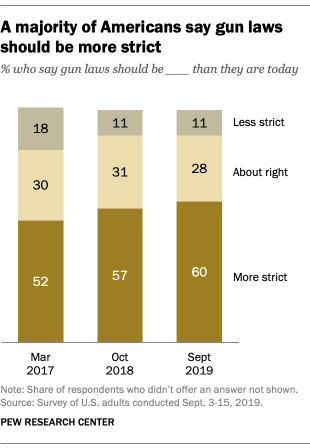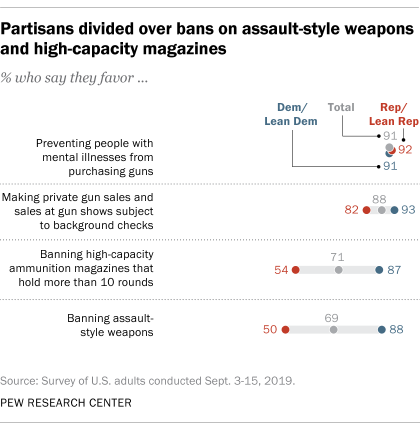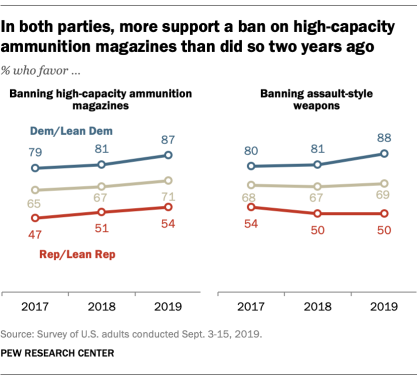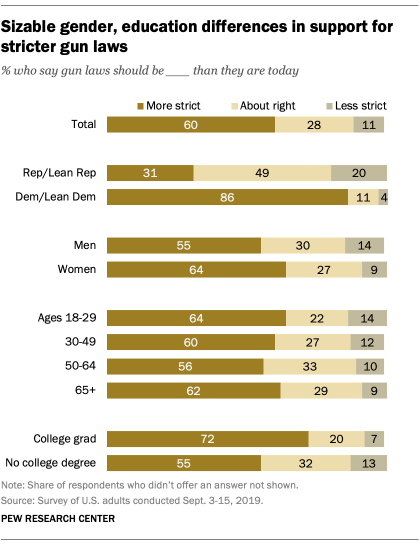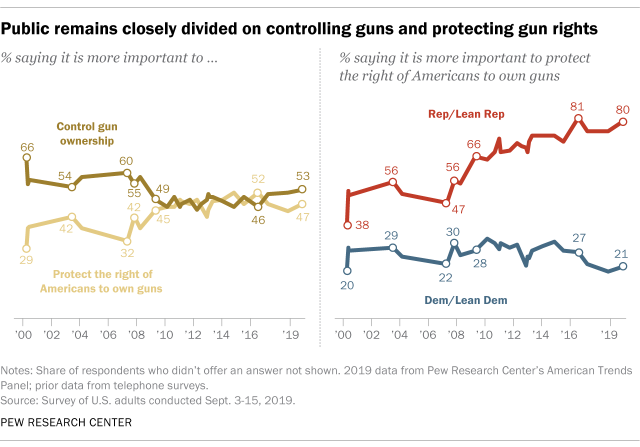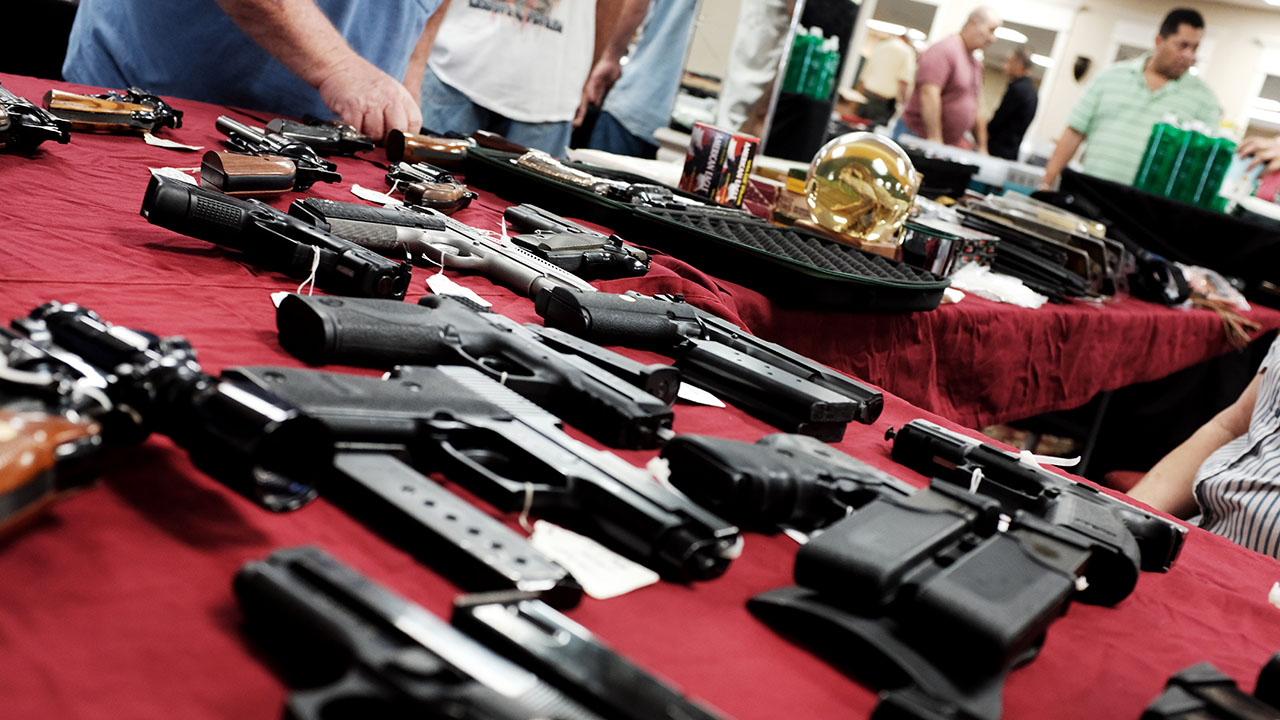
Despite deep partisan divisions on the issue, there has been a modest rise in support for stricter gun laws in the United States since 2017, a new Pew Research Center survey has found.
In addition, while opinion on most gun policies has changed little in recent years, somewhat more Americans favor banning high capacity ammunition magazines today (71%) than did so two years ago (65%).
Overall, the share of Americans who say gun laws in the U.S. should be made stricter has increased from 52% in 2017 to 60% this year, according to a survey conducted in September. The share of those saying gun laws should be less strict has dropped from 18% in 2017 to 11% today.
As with attitudes on many gun-related issues, there are sharp partisan divides about whether gun laws should be stricter. Currently, 86% of Democrats and Democratic-leaning independents favor stricter gun laws, compared with 31% of Republicans and Republican leaners. The share of Democrats who support stricter gun laws has risen 11 percentage points since 2017, while there has been 7-point increase in support among Republicans.
When it comes to specific gun-related policies, the public finds broad agreement in certain areas. Overwhelming majorities of Democrats and Democratic-leaning independents (91%) and Republicans and Republican-leaners (92%) say they strongly or somewhat favor barring people with mental illnesses from purchasing guns. These views are largely unchanged since the question was first asked in 2017.
Similarly, large majorities in both parties continue to favor making private gun sales and sales at gun shows subject to background checks (93% of Democrats, 82% of Republicans).
Yet there are much wider differences in views of banning high-capacity ammunition magazines that hold more than 10 rounds and assault-style weapons. Nearly nine-in-ten Democrats favor each of these proposals, compared with about half of Republicans.
Still, support for banning high-capacity magazines has increased among members of both parties since 2017 (8 points among Democrats, 7 points among Republicans).
While more Democrats favor a ban on assault weapons now than did so two years ago, slightly fewer Republicans support such a ban than in 2017.
Majorities in most demographic groups favor stricter gun laws
Majorities in most demographic groups say gun laws in the U.S. should be stricter than they are currently. However, there are gender and educational differences.
Nearly two-thirds of women (64%) favor stricter gun laws, compared with 55% of men. Adults with at least a four-year college degree are more likely than those who have not completed to college to support stricter laws (72% vs. 55%).
Opinions about whether it is more important to control gun ownership or protect gun rights have changed little in recent years. Overall, 53% of Americans say it is more important to control gun ownership, while 47% say it is more important to protect the right of Americans to own guns.
As with views of whether gun laws should be more strict, there are differences in these opinions by gender and education level. Men are more likely than women to say gun rights are more important (53% vs. 42%), while women are more likely than men to say it is more important to control gun ownership (58% vs. 47%).
Roughly two-thirds (63%) of those with at least a four-year college degree say gun control is more important, compared with 48% of those who have not completed college. Those without a college degree are more likely to say gun rights are more important (52%, compared with 36% of college graduates).
Views on overall priorities for gun policies have long been divided along partisan lines, but these differences have widened considerably over the past decade. In 2010, President Barack Obama’s second year in office, Republicans were about twice as likely as Democrats to say gun rights were more important than gun control (65% vs. 33%). In the current survey, Republicans are nearly four times as likely as Democrats to say gun rights are more important than gun control (80% vs. 21%).
Results for this report are based on a survey conducted through Pew Research Center’s American Trends Panel – a probability-based, nationally representative panel of U.S. adults administered online. The question on whether it is more important to protect gun rights or control gun ownership has been included on telephone surveys in the past.
Results from self-administered (online) and interviewer-administered (telephone) surveys are sometimes different even when the questions are worded the same. This difference is called a mode effect.
To assess possible mode effects in gun policy attitudes, the question on the importance of gun rights vs. gun control was included on a recent telephone survey in addition to this wave of the American Trends Panel. The two surveys produced similar estimates. Results for both surveys are shown in the topline.
The chart in the report that draws upon trend data from telephone surveys includes a footnote indicating the mode of data collection. For more information about mode effects, click here.
Note: See full topline results and methodology.



